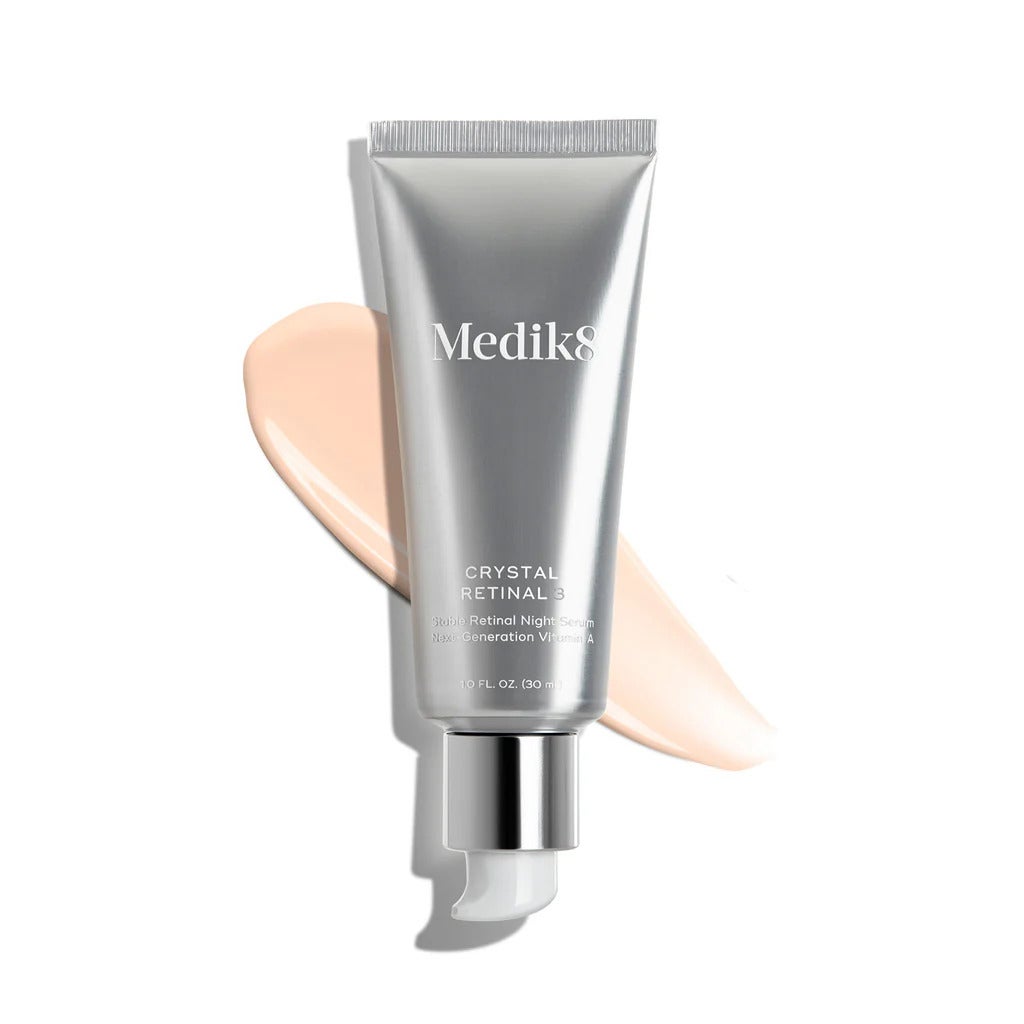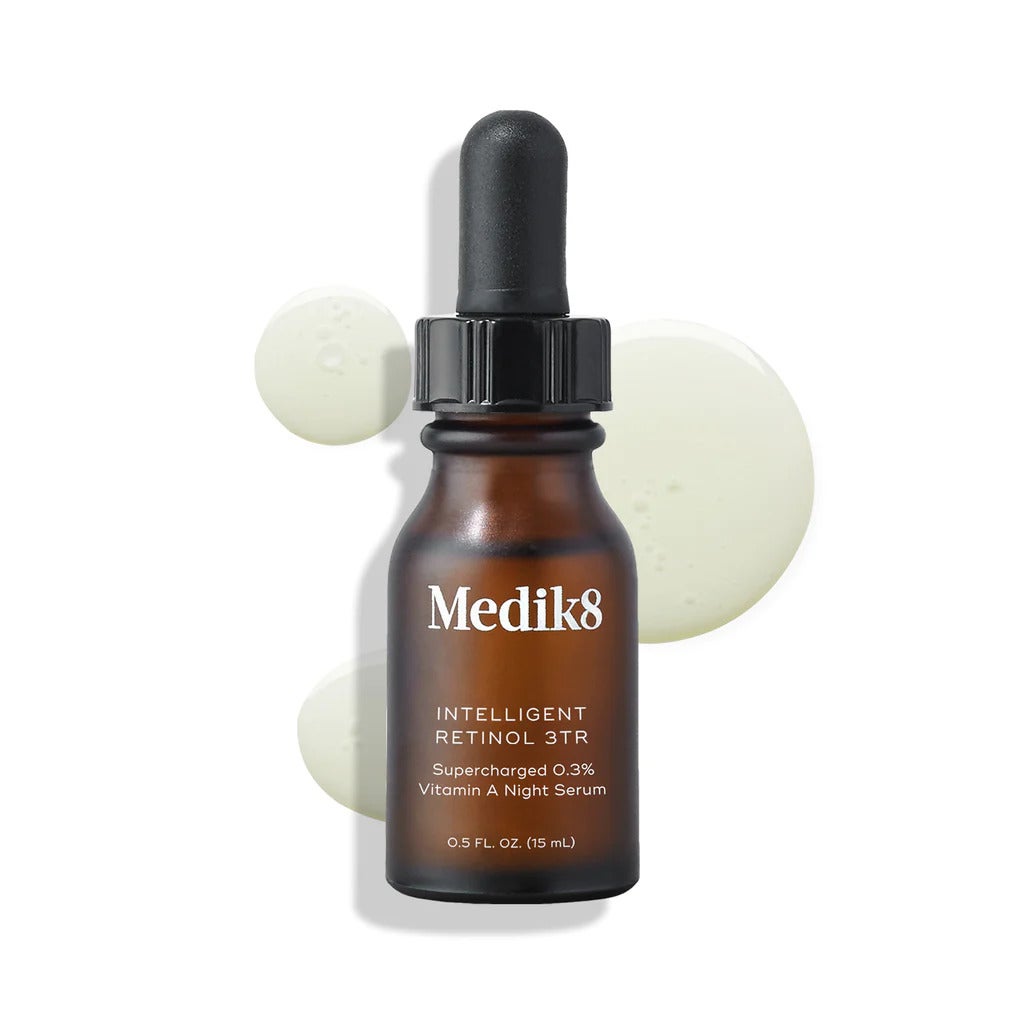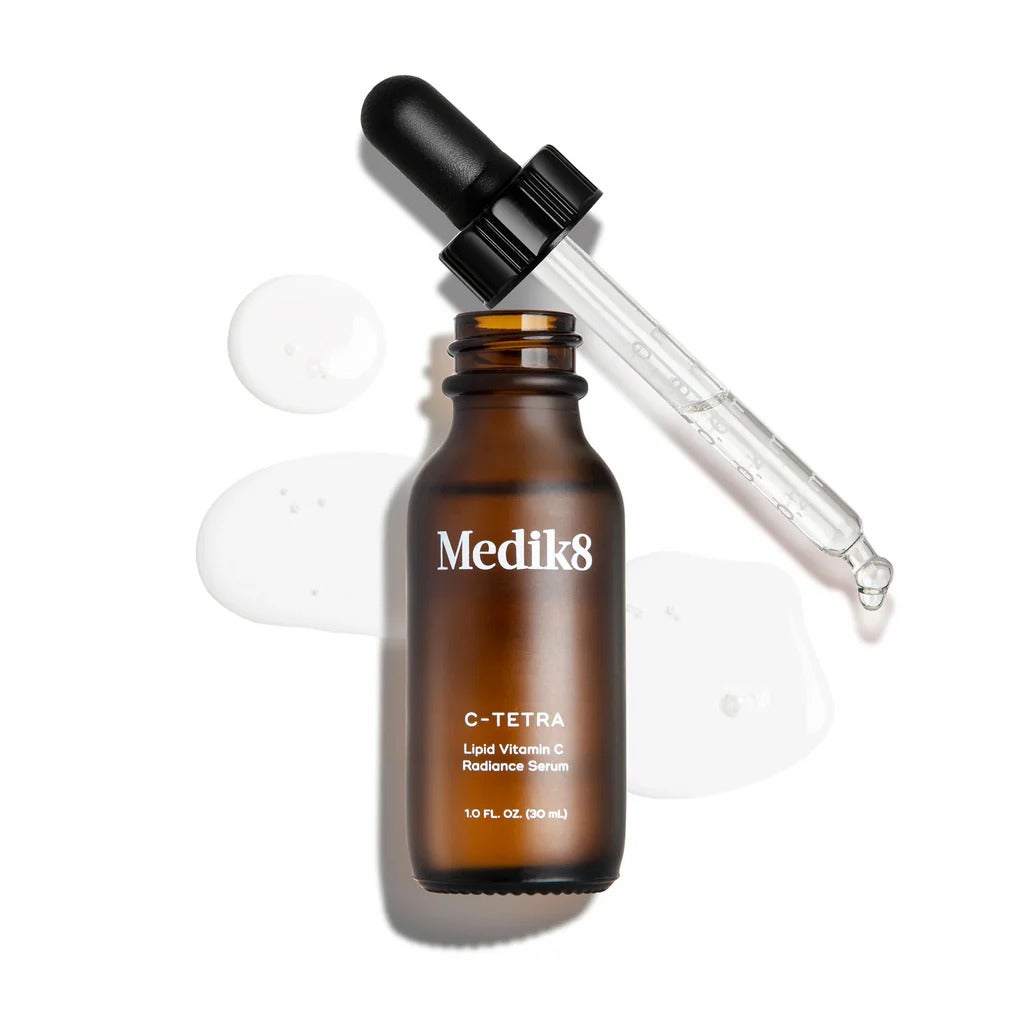All linked products are independently selected by our editors. If you purchase any of these products, we may earn a commission.
Our skincare shelf is in desperate need of an overhaul as we head further into summer. Many of our trusty hydrating serums and face oils, which worked wonders for our dry skin in winter, are now making us feel uncomfortably sticky. As temperatures and humidity levels continue to climb, finding the right moisturiser that keeps our skin dewy and glowing — but never greasy — is now top priority. If similar concerns are bugging you, allow us to present our new favourite moisturiser of the season: Medik8’s new Total Moisture Daily Facial Cream.
AdvertisementADVERTISEMENT
This lightweight cream claims to restore moisture levels in your skin barrier in just an hour, according to results from a two-week clinical study. The product is meant to serve your skin a much-needed drink of water — without overwhelming it or clogging your pores (more on how exactly this can be accomplished, ahead).
Two of our editors tried this moisturiser during a heatwave and have showered it with unequivocal praise. We’ve given a lowdown on what exactly got us so impressed. We’ve also enlisted dermatologists to dissect a few of the key ingredients and the skincare benefits, to help you better understand why it’s such a highly rated product.
Is this Medik8 moisturiser any good?
I’m very picky when it comes to moisturisers; I have combination skin, so I get quite oily along the T-zone. Heavier creams are too much for me in the summer, but my cheeks and jawline turn dry and itchy when I’m wearing a product that is not hydrating enough. This Medik8 moisturiser scored high in relieving both concerns.
The texture is so weightless and barely there, it slides out and melts into my skin straight away. There is no slippery, overwhelming feeling or the fear that it could clog my pores, and yet my skin stays pillowy and bouncy all day. Even when I venture out in the heat, I don't get that sweat-product mixture that coagulates on my upper lip and forehead, compared to some of the heavier moisturisers I’ve tried in the past.
AdvertisementADVERTISEMENT
Jacqueline Kililita, Refinery29’s Deputy Beauty Director, says the watery texture is a dream. “I’ve said that it would take something really special to replace the moisturiser that I’ve been using non-stop since last December (The Inkey List’s Bio-Active Ceramide Repairing + Plumping Moisturiser, in case you were wondering). But I was sold on this Medik8 cream after just one go. It immediately takes away any tightness post-cleanse and makes my skin look even in tone,” she says. “It’s lightweight enough that I can layer SPF over the top and not feel suffocated, and makeup glides over the top effortlessly.”
This moisturiser is the kind of product you get through quickly: we’re already halfway through our tubs and are lamenting the the day that it runs out. The formula feels so nice on my skin that I’ve also been applying it on the more dehydrated parts of my body, such as my elbows.
We’ve raved about the product’s cloud-like texture and impressive efficacy, but that is all down to the dream team of ingredients: prebiotic peptides, multi-weight hyaluronic acid, various ceramides and lipids. Read on to learn why they are so great for your skin.
What are prebiotic peptides and why are they good for the skin?
The star ingredient in this moisturiser is prebiotic peptides. You might already be familiar with peptide skincare, and how it can boost collagen production and encourage skin regeneration. But according to the dermatologists I spoke to, prebiotic peptides are the next level up from that. “Regular peptides help with structural skin improvements, whilst prebiotic peptides also help to improve the skin microbiome,” says Dr Ellie Rashid, consultant dermatologist and pro medical director for the personalised skincare brand Klira. Without taking you back to biology class, the microbiome is essentially a host of “friendly” bacteria on your skin, which keep it healthy and happy. In other words, these peptides help them flourish.
AdvertisementADVERTISEMENT
That’s not all. “Prebiotic peptides both signal the skin to produce more collagen and elastin, enhancing skin firmness and elasticity, and support the beneficial microorganisms on the skin, enhancing the skin microbiome,” she adds. “A well-balanced skin microbiome can protect against environmental stressors and help improve inflammatory and sensitive skin conditions such as rosacea.” In other words, your skin barrier will be a whole lot more resilient after using this moisturiser.
What is multi-weight hyaluronic acid and why is it good for the skin?
Hyaluronic acid is also nothing new in skincare, but in this moisturiser, the ingredient comes in multiple molecular weights. “Hyaluronic acid molecules of varying [weights and] sizes will penetrate multiple layers of the skin, which means there is deeper hydration and more comprehensive moisture retention,” says consultant dermatologist Dr Derrick Phillips. “This is different from regular hyaluronic acid, which typically has a uniform molecular weight and primarily hydrates the skin’s surface.” If your skin tends to feel tight after cleansing, an ingredient like this will shuttle moisture back in quickly, alleviating the uncomfortable tugging feeling almost instantly.
What are ceramides and why are they good for the skin?
Alongside prebiotic peptides and hyaluronic acid, you’ll find ceramides. They are found naturally in the skin, but over time, our levels can deplete and tend to need topping up. Ceramides play a vital role in maintaining your skin’s protective barrier, which keeps “good” stuff in (like moisture) and “bad” things out (such as pollution and bacteria).
AdvertisementADVERTISEMENT
“These lipid molecules are naturally found in the skin,” says Dr Rashid. “They strengthen the skin barrier, locking in moisture and protecting against environmental stressors, which can lead to smoother, more hydrated skin.”
Think of ceramides like the glue that holds your skin together. Without them, skin can become dry and uncomfortable. This is a non-negotiable ingredient for Kilikita: “Personally, I won’t buy a moisturiser unless it has this ingredient, because I love the plumping, moisturising effect on my skin,” she says.
What is squalane and why is it good for the skin?
Then there’s squalane, which is a lightweight, non-comedogenic oil that mimics the skin’s natural sebum (oil). According to Dr Rashid, this is an ingredient suitable for all skin types, due to its ability to moisturise and balance oil production. Its antioxidant properties also help protect against free radicals, which are unstable molecules in the environment emitted from the likes of pollution and UV, and can damage skin over time.
What is vitamin F and why is it good for the skin?
Linoleic acid, also known as vitamin F, is the final ingredient that rounds out the list. “Vitamin F is an omega-6 fatty acid found in plant-based oils,” says Dr Phillips. “It helps balance the fatty acids in sebum and incorporates into the skin’s lipid barrier, promoting hydration and reducing clogged pores. It also plays a role in regulating the body's inflammatory processes,” — reducing redness.
Our final thoughts
After deep diving into the ingredient list, it’s not hard to see why this product has received a seal of approval from dermatologists and editors alike. The weightless formula is packed with ingredients that pull double shifts at hydrating, and the texture makes it a dream to apply. We are calling it now: This Medik8 moisturiser is going to be the summer beauty essential you’ll be using on repeat.
Shop our favourite Medik8 products
AdvertisementADVERTISEMENT









